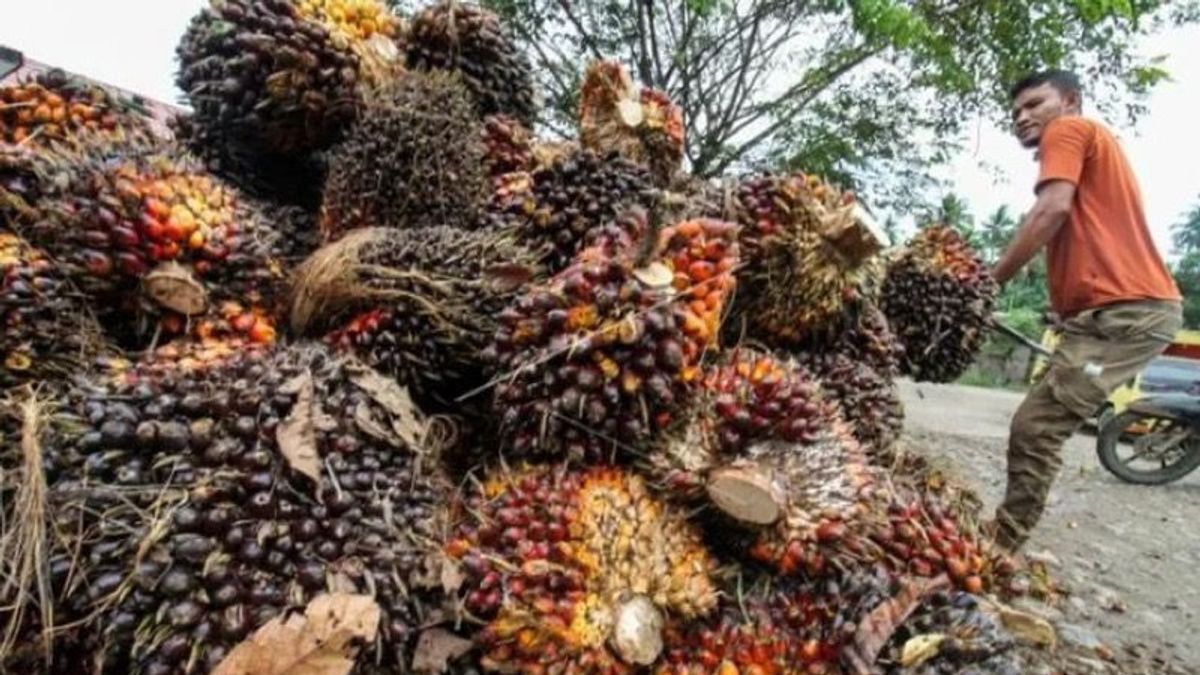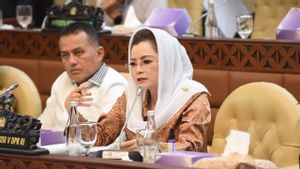ACEH - The Aceh Agriculture and Plantation Service (Distanbun) has asked palm oil mills to buy fresh fruit bunches (FFB) at the price set by the government.
"We always monitor, a few days ago we also met with PKS to discuss FFB pricing," said Regina, Head of the Plantation Management and Marketing Division of the Aceh Distanbun, Regina, as quoted by ANTARA, Thursday, June 30.
The Aceh Distanbun has set the FFB price on Wednesday 29 June, and is valid until the first week of July 2022.
For the western region of Aceh, palm oil mills have to buy FFB with the highest price at the age of 10-20 years at IDR 1,850 per kilogram and the lowest at three years at IDR 1,200 per kilogram.
Meanwhile, in the eastern region of Aceh, the highest price for oil palm FFB aged 10-20 years was Rp. 1,874 per kilogram, and the lowest price was at the age of three, which was Rp. 1,287 per kilogram.
"This condition is always changing, so we set the price once a week," said Cut Regina.
Therefore, Distanbun asks palm oil mills to be disciplined in buying FFB at a set price, especially for farmers who partner with companies, as regulated by Minister of Agriculture Regulation No. 1 of 2018.
Currently, according to him, only about 30 percent of oil palm farmers in Aceh are included in farmer institutions and partnered with palm oil mills.
While the remaining 70 percent are still independent farmers.
"We have set the price, according to the yield, the palm oil mills just have to follow it for those who are partners. Maybe those who are not partners are bought below that (price)," he said.
Regina explained that the price set by the government this time was indeed lower than the price set in previous months, which was even more than IDR 3,000 per kilogram of palm FFB.
The decline in the price set by the government was the impact of the recent ban on CPO exports.
However, when the export faucet is now reopened, palm oil mills are not ready to export due to several factors, one of which is high export levies.
This causes the accumulation of FFB in every palm oil mill, and also makes its quality decrease.
"Indeed, after opening the export faucet, palm oil mills have not exported because the price is not appropriate, because there has been a buildup from the beginning of the export ban. It is also impossible for PKS to sell at a low price, while they buy at a high price," Regina said.
The English, Chinese, Japanese, Arabic, and French versions are automatically generated by the AI. So there may still be inaccuracies in translating, please always see Indonesian as our main language. (system supported by DigitalSiber.id)








